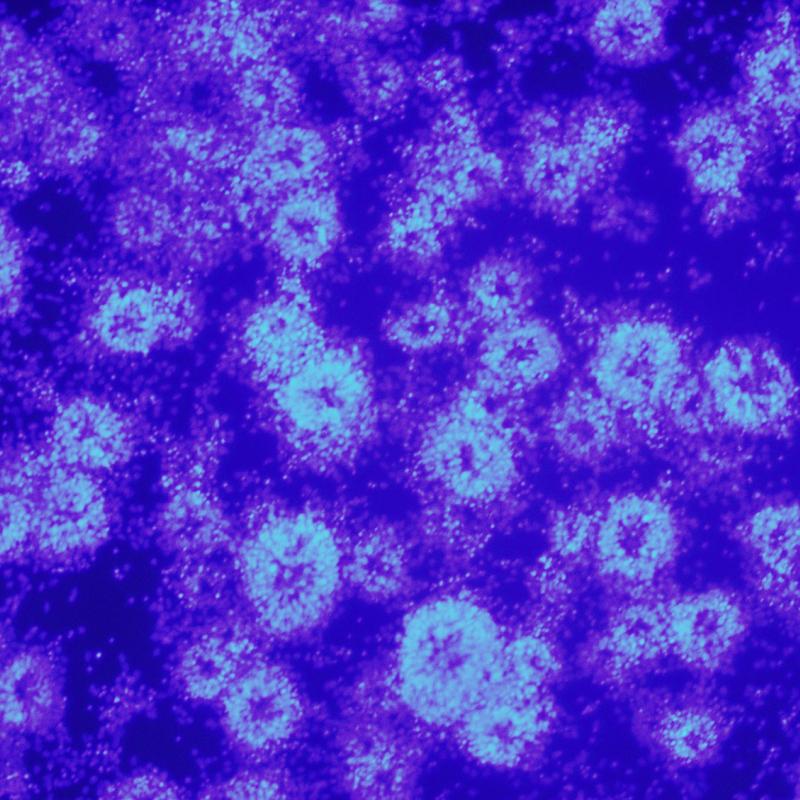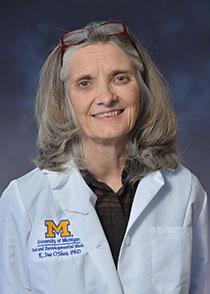Biography
Dr. O’Shea received her bachelor’s degree in Psychology and Spanish from the University of Nebraska and her Ph.D. in Developmental Biology from the University of Cambridge, England. In Cambridge, she worked in the laboratory that isolated the first embryonic stem cells from mouse embryos. Research in the O’Shea lab at the University of Michigan is focused on understanding the events involved in the induction and early differentiation of the nervous system using mouse models, embryonic stem cells, and induced pluripotent stem cells (iPSC). Her team has recently identified a small RNA (ribonucleic acid) that controls the differentiation of stem cells into neurons, and is investigating its role in CNS (central nervous system) development.
Dr. O’Shea’s lab, where she directs eight researchers, is working with the Prechter Bipolar Research Program to derive induced pluripotent stem cells (iPSC) from skin biopsies from patients diagnosed with bipolar disorder and undiagnosed control individuals. This exciting project involves sampling skin tissue from adults with and without the illness, and transforming those cells into stem cells and ultimately into nerve cells that look and behave like brain cells. This allows us to understand — in a laboratory — how individuals might react to different treatments and it is truly the heart of “personalized medicine.” We believe this novel research will lead to treatments based on each individual’s unique cellular characteristics.
Dr. O’Shea also heads the Michigan Center for Pluripotent Stem Cell Research, an
NIH-funded central resource for the University of Michigan campus that helps researchers from many labs culture and work with human embryonic stem cell lines that are on the approved list for NIH-funding. They also train researchers in the derivation of induced pluripotent stem cells to model developmental disorders.

Stem Cell Lab Year-End Research Summary
The Stem Cell Lab is led by Dr. K. Sue O'Shea

Human stem-cell images as fashion?
Human stem cells have taken on new roles at the University of Michigan — brilliant blue fashion accessories.

Do drugs for bipolar disorder "normalize" brain gene function? U-M study suggests so
Brain tissue study shows gene expression in patients treated with antipsychotics is similar to expression in non-bipolar brains



